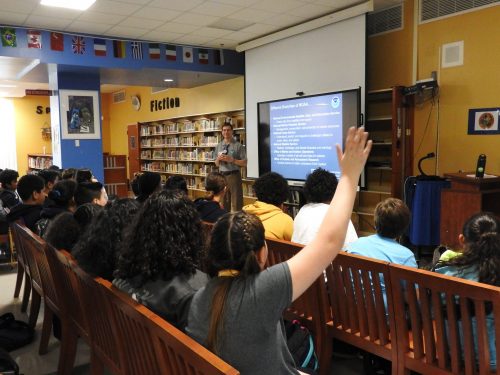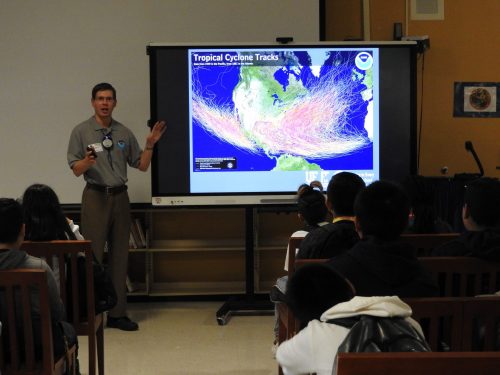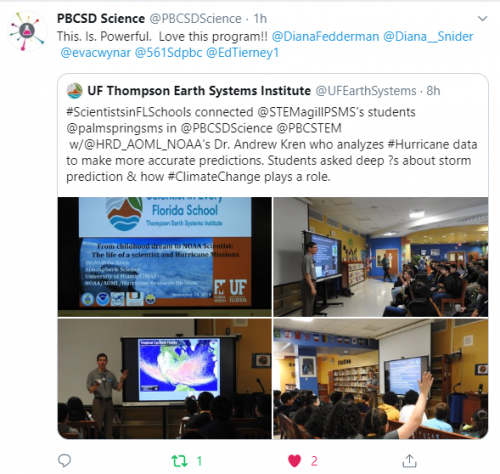Why is the past important?
Palm Springs Middle School teacher, Heather Magill shared stories with her students about growing up in Miami during Hurricane Andrew. After the recent Palm Beach County scare and devastating aftermath in the Bahamas from Hurricane Dorian, her students had lots of questions. That’s when Magill reached out to Scientist in Every Florida School.

Scientist in Every Florida School connects teachers and scientists in schools across the state. After learning more from Magill, she was put in touch with Andrew Kren.
Kren is a hurricane research scientist with the National Oceanic and Atmospheric Administration’s Atlantic Oceanographic and Meteorological Laboratory Hurricane Research Division. He displayed historical data in a computer model during his visit, to explain the importance of looking to the past to understand the future. Hurricane records from the Atlantic dating back to 1850, tell scientists a lot about changing climate and aide them in understanding hurricanes today.

He then explained how the data is collected through different processes. One such method is with a device known as a dropsonde. Aircraft are dispatched during hurricanes and fly into the storms to dispense the dropsondes, which record measurements like air pressure.
Students watched in amazement as Kren shared videos of hurricane aircraft flying through the eyewall of Dorian collecting dropsonde data. “Since the implementation of dropsonde technology continued modifications and improvements ultimately changed how and where the devices are dropped today,” explained Kren.
The changes made in deployment led to more accurate storm predictions. Those modifications protect both people and structures, which Kren said is “one of the most fulfilling aspects of the job.”
Applied Florida Learning Standards
- SC.6.E.7.3 Describe how global patterns such as the jet stream and ocean currents influence local weather in measurable terms such as temperature, air pressure, wind direction and speed, and humidity and precipitation.
- SC.6.E.7.7 Investigate how natural disasters have affected human life in Florida.
- SC.6.E.7.8 Describe ways human beings protect themselves from hazardous weather and sun exposure.
- SC.8.E.5.10 Assess how technology is essential to science for such purposes as access to outer space and other remote locations, sample collection, measurement, data collection and storage, computation, and communication of information.
Hearing from a real scientist about the dynamic nature of hurricane science, let students see how science connects to their daily lives. Check out The Newsroom to see SEFS featured stories from across the state. To schedule a scientist visit click here: Scientist in Every Florida School Scientist Request Form.
